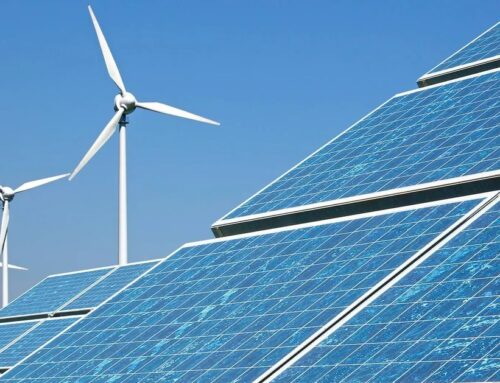‘The Caspian Sea is shrinking. It is visible with the naked eye’
June 27, 2025
Aktau, Kazakhstan – During his childhood, Adilbek Kozybakov’s mother always kept a jar of sturgeon caviar in the fridge.
Each day, she would spoon it on small pieces of bread and butter for him and his siblings. Caviar would keep them in good health, she believed.
list 1 of 4
Month of May was world’s second-warmest on record: EU scientists
list 2 of 4
How will the space race affect our environment?
list 3 of 4
In Brazil, a fight over offshore drilling tests Lula’s climate ambitions
list 4 of 4
Lake Chad Basin: Violence and displacement
end of list
Kozybakov did not like it.
It was salty and “smelled like the sea”, said Kozybakov, an ecologist, now 51.
He grew up in Aktau, a city in western Kazakhstan on the shores of the Caspian Sea.
But now, more than 40 years later, he looks back at this family ritual with nostalgia. Today, there is no more natural caviar left in Aktau’s shops. Sturgeons are an endangered species due to overfishing and the degradation of their habitat. And soon, the sea might be gone, too.

According to a study published in Nature magazine in April, the Caspian Sea level is likely to decline by up to 18 metres (59 feet) and could lose up to 34 percent of its surface by the end of the century.
Water decline of even five to 10 metres may disrupt key ecosystems in the area, including habitats for endemic Caspian seals and sturgeon, the study says.
For residents like Kozybakov, who is a member of a civil advisory body on the environment at the Ministry of Ecology, this has been clear for years.
“We don’t have to conduct any studies to know that the sea is shrinking. It is visible with the naked eye,” Kozybakov told Al Jazeera.
Located between Russia, Kazakhstan, Turkmenistan, Iran and Azerbaijan, the Caspian Sea is the world’s largest landlocked body of water, part of the “Middle Corridor” – the fastest route from China to Europe bypassing Russia, and a major source of oil and gas.
Many fear that the Caspian Sea may share the fate of the nearby Aral Sea, located between Kazakhstan and Uzbekistan, which began to shrink in the 1960s as the rivers supplying it were extensively used by the Soviets to irrigate cotton fields.
Advertisement
Currently, the sea occupies only 10 percent of its original surface, and its decline has had a tremendous effect on the local ecosystem and people’s health.
As in the case of the Aral Sea, the Caspian’s woes are not been driven only by climate change.
The Volga, Europe’s largest and longest river located in Russia, has been the source of 80 to 85 percent of the Caspian water.
According to experts, Russia’s water management has affected the sea.
“Over the years, Russia has built a lot of dams and water reservoirs on the Volga and has used its water for agriculture and industry. As a result, much less water has been flowing into the Caspian Sea,” Kozybakov told Al Jazeera.
“A hundred years ago, the sturgeon would live for many decades, and no one would touch it. It grew to huge sizes which we can see at historical photos. Today, the population of sturgeon has been destroyed by poachers and its environment polluted by oil companies.”
Kazakhstan’s three major oil fields, discovered in Soviet times, are operated by foreign companies.
In February this year, Vadim Ni, an environmental lawyer from Kazakhstan behind a campaign to “Save the Caspian Sea” decided to sue his own government.
He argues that the state’s contracts signed with the multinational oil and gas companies have been kept secret, which makes it impossible to determine their real impact on the environment around the Caspian Sea.
In the 1990s, Kazakhstan was newly independent, emerging after the collapse of the Soviet Union. When it became clear that its oil and gas reserves could be extracted and transported to other countries, large energy companies and their lawyers flocked to the country to secure deals.
They negotiated their contracts with the Kazakh state to be subject to international private law, ensuring details of the deals remained confidential. As a result, in case of conflict between the signatories, international arbitration courts would need to resolve disputes.
Ni said that this is unjust and against international law, as per the Aarhus Convention, which ensures open access to environmental information.
“Oil companies do not want to reduce their revenues and increase their liability and responsibility for the environment. While they often conduct environmental research to demonstrate due diligence, there is a reason to question the objectivity and reliability of these results, given their vested interests,” said Ni.
“In addition, we are discussing energy transition and German investments in hydrogen energy on the Caspian. But it will be green energy for Europe, not for us. Hydrogen requires huge amount of electricity produced by renewables and we will have to deal with the waste and water pollution,” he told Al Jazeera.
Advertisement
The court has not admitted the case, claiming that there are no grounds to launch a lawsuit. But Ni said if his appeal fails, he will pursue the case under the international legal system.
Meanwhile, the fight to save the Caspian Sea has already begun.
In Aktau, Kozybakov works with the local administration, residents and civil society groups, while raising the alarm at the national level by joining environmental initiatives.
“We want to raise these issues from the bottom to show the government that people are concerned,” said Kozybakov. “Not only ecologists but also average citizens, residents of Aktau who grew up here and who are worried about the future of their children and grandchildren.”
Search
RECENT PRESS RELEASES
Related Post



